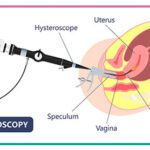Chia seeds are small, oval-shaped seeds that may not have a distinctive flavor, though they carry a mildly nutty taste. Despite their subtle flavor, these seeds pack an impressive punch when it comes to nutritional benefits. Rich in essential nutrients, chia seeds have become a popular superfood in modern diets.
Let’s dive deep into their nutritional composition, potential benefits, side effects, and practical ways to incorporate them into your daily life.
The 7 Essential Nutrients in Chia Seeds
Chia seeds are rich in essential nutrients, including alpha-linolenic acid (ALA), fiber, protein, fats, carbohydrates, calcium, and vitamins. Here’s a closer look at how these nutrients contribute to overall health:
Alpha-Linolenic Acid (ALA)
Chia seeds are an excellent source of ALA, a type of omega-3 fatty acid. A single tablespoon of chia seeds provides approximately 1.32 grams of ALA. Research suggests that ALA is crucial for human growth and development and plays a significant role in maintaining heart health by:
- Reducing the risk of cardiovascular diseases.
- Supporting normal heart rhythm and improving heart pumping efficiency.
- Lowering blood pressure and combating arterial plaque buildup.
Source: American Heart Association
Fiber
Each 28-gram serving of chia seeds contains about 10 grams of dietary fiber. This indigestible plant compound:
- Promotes digestive health by enhancing bowel regularity.
- Helps lower cholesterol levels and improve heart health.
- Provides a sense of fullness, reducing calorie intake—making it ideal for weight management.
Fiber also supports gut health by feeding beneficial gut bacteria. However, excessive fiber intake without adequate water consumption may lead to bloating or constipation.

Protein
Chia seeds are a plant-based protein powerhouse, offering about 4.7 grams per 28 grams. Protein in chia seeds supports:
- Muscle growth and repair, making them an excellent choice for athletes and bodybuilders.
- Immune system health and tissue regeneration.
- Regulation of blood sugar levels, aiding in diabetes management.
Combining chia seeds with other protein sources can enhance their amino acid profile for complete protein intake.
Fat
Chia seeds contain about 8.7 grams of fat per 28 grams, primarily consisting of beneficial unsaturated fats. These fats:
- Aid in maintaining cholesterol levels and reducing inflammation.
- Support cellular function and energy production.
- Help absorb fat-soluble vitamins like A, D, E, and K.
Besides, people can relish the support in gut health and beneficial effects on blood pressure because of good fats.
Carbohydrates
Despite their high fiber content, chia seeds are low in digestible carbohydrates, making them suitable for low-carb diets like keto. Carbs in chia seeds primarily come from fiber, which doesn’t spike blood sugar levels. They:
- Boost energy levels.
- Aid in recovery after workouts.
- Support brain function and enhance mood.
Calcium
With about 631 mg of calcium per 100 grams, chia seeds are a fantastic plant-based source of this vital mineral. Calcium is essential for:
- Strengthening bones and teeth.
- Supporting muscle function and nerve signaling.
- Reducing the risk of osteoporosis.
Vitamins
Chia seeds also contain smaller amounts of vitamins such as B1, B2, B3, C, E, and folate. Additionally, they are rich in minerals like magnesium, phosphorus, manganese, and iron, which are vital for energy production and overall well-being.
Overall, vitamins are vital in normal growth and assist cells and organs in performing efficiently.
Potential Side Effects and Contraindications
While chia seeds are generally safe, excessive consumption can cause side effects such as:
- Gastrointestinal discomfort: High fiber content may lead to bloating or constipation if not consumed with adequate water.
- Blood-thinning effects: Chia seeds’ omega-3 content may amplify the effects of blood-thinning medications.
- Allergic reactions: Though rare, some individuals may experience allergic responses.
It’s best to consult a healthcare professional before adding chia seeds to your diet, especially if you have pre-existing medical conditions.
Easy Ways to Add Chia Seeds to Your Diet
1. Recipes
- Chia Pudding: Mix 2 tablespoons of chia seeds with 1 cup of almond milk, a sweetener of your choice, and let it sit overnight. Top with fruits and nuts for a nutritious breakfast.
- Smoothies: Add a tablespoon of chia seeds to your favorite smoothie for an extra nutrient boost.
- Baked Goods: Include chia seeds in muffins, bread, or cookies for added texture and nutrition.
2. Preparation Tips
- Soak chia seeds in water or milk for 10-15 minutes before consuming to enhance their digestibility.
- Use ground chia seeds as a thickener in soups or sauces.
3. Storage Guidelines
- Store chia seeds in an airtight container in a cool, dry place. Proper storage can extend their shelf life to up to 2 years.
What Are the Chia Seeds Nutrients?
There are plenty of nutrients, however, let us state the ones we did not explain earlier; iron, copper, selenium, manganese, magnesium, and phosphorus.
FAQs About Chia Seeds
1. Do chia seeds have a taste?
Chia seeds have a mild, nutty flavor, making them versatile for sweet and savory dishes.
2. Are chia seeds suitable for keto diets?
Yes, chia seeds are low in net carbs and rich in fiber, making them an excellent addition to keto diets.
3. Can pregnant women eat chia seeds?
Yes, in moderation. Chia seeds provide essential nutrients like calcium and omega-3s that support healthy pregnancy. Always consult your doctor for personalized advice.
4. Are chia seeds good for the skin?
Yes, chia seeds contain antioxidants and omega-3s, which improve skin elasticity and radiance while combating inflammation.
5. How much chia seed should I consume daily?
The recommended daily intake is 1-2 tablespoons. Gradually increase your intake to prevent digestive discomfort.
Conclusion
Simply put, if you input ‘chia seeds nutrients’ in the internet search engine, you will surprise your senses with a vast list. This is why chia seeds have been highly popular since ancient times. They entail fiber, ALA, calcium, carbohydrates, fat, protein, iron, magnesium, vitamins, phosphorus, and more. Each component contributes in a different quantity and has many health benefits.
For instance, calcium in organic chia seeds is apt for bone strengthening and positively affecting the functionality of muscles. Furthermore, chia seeds have carbohydrates that resemble fiber, as per a source online. These carbs effectively promote the sleep cycle, accelerate recovery, and boost the digestive system.
Another nutrient is fiber, which works well for weight loss. Fiber does not modify while passing through the stomach and intestines and battle the excessive hunger issues. Also, chia seeds have some vitamins that are lower in amount than minerals. Some of the vitamins are vitamin E, vitamin C, vitamin B9, and vitamin B2.


